No products in the cart.
WordPress Theme And Plugin Compatibility Tools Plugins That Save $5,600 Per Minute In Website Downtime Costs
WordPress powers over 43% of all websites globally, making it the world’s most popular content management system. However, with great popularity comes great responsibility—especially when it comes to maintaining plugin and theme compatibility. For small business owners, WordPress developers, and digital marketers alike, plugin conflicts can mean the difference between a thriving online presence and costly downtime that damages both revenue and reputation.
Plugin compatibility issues affect millions of WordPress sites daily, with the average small business losing approximately $5,600 per minute during unexpected downtime. Whether you’re managing a single blog or multiple client sites, understanding and implementing proper WordPress theme and plugin compatibility tools is essential for maintaining website stability, performance, and user experience.
This comprehensive guide explores the most effective WordPress theme plugin compatibility tools available in 2025, providing actionable insights for users at every technical level—from complete beginners to seasoned developers.
I. Understanding WordPress Theme And Plugin Compatibility Tools Plugins Issues
1. What Are WordPress Compatibility Conflicts?
WordPress compatibility conflicts occur when plugins, themes, or core WordPress components fail to work harmoniously together. These conflicts typically manifest in three primary forms: plugin-to-plugin conflicts where two or more plugins interfere with each other’s functionality, theme-to-plugin conflicts where theme code clashes with plugin operations, and PHP version compatibility issues that arise when plugins aren’t optimized for newer PHP versions.
Recent studies indicate that approximately 23% of WordPress sites experience at least one compatibility issue annually, with plugin conflicts being the leading cause of website crashes after plugin updates. The complexity increases exponentially as more plugins are installed, with sites running 15+ plugins facing a 67% higher risk of experiencing compatibility issues.
2. Business Impact Of Compatibility Problems

Business Impact of Compatibility Problems
The financial implications of WordPress plugin conflicts extend far beyond temporary inconvenience. Small businesses face an average downtime cost of $5,600 per minute, while e-commerce sites can lose thousands in revenue during peak shopping periods. SEO rankings also suffer significantly, as search engines penalize sites with frequent downtime or poor user experience metrics.
Consider this real-world scenario: A mid-sized e-commerce store recently lost over $50,000 in revenue when a WordPress plugin causing website to break troubleshooting issue went undetected during a Black Friday sale. The conflict between their payment gateway plugin and a newly updated security plugin resulted in checkout failures for six hours before the issue was identified and resolved.
Beyond immediate financial losses, compatibility issues damage brand reputation, reduce customer trust, and can lead to long-term SEO penalties that take months to recover from. Google’s Core Web Vitals update has made site stability a crucial ranking factor, making plugin compatibility more important than ever for search engine optimization.
3. Common Compatibility Issue Scenarios
WordPress troubleshooting professionals encounter several recurring compatibility scenarios. WordPress core updates frequently break older plugins that haven’t been maintained or updated to work with newer WordPress versions. This is particularly problematic for sites using custom or legacy plugins that may no longer receive developer support.
PHP updates represent another significant challenge, especially as hosting providers increasingly enforce newer PHP versions for security reasons. WordPress plugin conflicts after PHP update scenarios have become increasingly common, with plugins written for older PHP versions failing catastrophically when servers upgrade to PHP 8.0 or higher.
Theme changes can also trigger unexpected plugin conflicts, particularly when switching between themes with different coding standards or framework dependencies. WordPress plugin debugging tools become essential during theme transitions to identify and resolve potential conflicts before they impact live sites.
II. Essential WordPress Theme And Plugin Compatibility Tools Plugins Overview
1. Free Vs. Premium Compatibility Solutions
The WordPress ecosystem offers both free and premium solutions for managing plugin compatibility, each serving different user needs and technical requirements. Free tools like the WordPress Health Check plugin provide excellent baseline functionality for small business owners and individual bloggers who need reliable conflict detection without ongoing costs.
Premium solutions typically offer advanced features such as automated testing, comprehensive reporting, and priority support. For WordPress developers managing multiple client sites or businesses with critical uptime requirements, the ROI on premium tools often justifies the investment through reduced troubleshooting time and prevented downtime incidents.
Budget considerations should factor in both direct tool costs and the potential cost of undetected conflicts. A $50 annual premium plugin subscription becomes negligible when compared to even a single hour of unexpected downtime for a revenue-generating website.
2. Tool Categories And Use Cases

Tool Categories and Use Cases
WordPress plugin compatibility checker tools fall into several distinct categories, each serving specific diagnostic and preventive functions. Diagnostic tools like the Health Check & Troubleshooting plugin focus on identifying existing issues and providing detailed system information. These tools excel at troubleshooting active conflicts and providing comprehensive site health assessments.
Conflict detection tools, such as specialized WordPress plugin conflict detector solutions, proactively identify potential conflicts before they cause site failures. These tools typically work by systematically testing plugin combinations and monitoring for error conditions or performance degradation.
Prevention tools, including PHP compatibility checker WordPress solutions, focus on anticipating future compatibility issues. WPTide integration technology, developed collaboratively by Google and Automattic, represents the cutting edge of predictive compatibility testing, scanning plugin code against multiple PHP versions to identify potential upgrade issues before they occur.
3. Integration With WordPress Ecosystem
Modern WordPress compatibility testing tools integrate seamlessly with the broader WordPress ecosystem, including official WordPress.org repositories, third-party marketplaces, and managed hosting platforms. This integration ensures that compatibility data stays current with plugin updates and WordPress core changes.
Hosting providers increasingly offer built-in compatibility tools as part of their WordPress hosting packages. WP Engine, for example, provides enterprise-grade compatibility checking through their DevKit platform, while other managed hosting providers offer similar functionality tailored to their specific infrastructure.
Developer workflow integration has become crucial for professional WordPress development, with compatibility tools offering APIs and command-line interfaces that integrate with continuous integration pipelines and automated testing frameworks.
III. Top 10 WordPress Theme And Plugin Compatibility Tools Plugins
1. Health Check & Troubleshooting (Official WordPress Tool)
The Health Check & Troubleshooting plugin stands as the gold standard for WordPress plugin conflict resolution, boasting over 700,000 active installations and official WordPress.org endorsement. This comprehensive tool provides a troubleshooting mode isolation feature that creates a clean testing environment where plugins can be disabled for individual users without affecting the live site experience for other visitors.
The plugin’s troubleshooting mode represents a breakthrough in WordPress diagnostics, allowing administrators to test plugin combinations in real-time without disrupting normal site operations. Users can systematically activate and deactivate plugins while monitoring for conflicts, errors, or performance issues.
Installation involves simply downloading from the WordPress.org repository and activating through the standard plugin interface. The tool automatically appears in the WordPress admin dashboard under Tools > Site Health, providing immediate access to comprehensive system diagnostics and conflict detection capabilities.
Best practices include running initial baseline scans before making any site changes, regularly scheduling health checks during maintenance windows, and documenting any identified issues for future reference. The plugin’s export functionality allows for detailed record-keeping and professional reporting.
2. Plugin Compatibility Checker
Advanced WordPress plugin compatibility checker solutions provide comprehensive analysis of installed plugins against current and future WordPress versions. These tools leverage WPTide integration technology to perform automated code analysis, identifying potential compatibility issues before they impact live sites.
The system information overview feature provides detailed insights into plugin versions, WordPress core compatibility, and PHP requirements. This information proves invaluable for planning updates and identifying plugins that may require attention or replacement.
PHP compatibility checking functionality scans installed plugins against multiple PHP versions, providing predictive analysis for hosting provider upgrades. This proactive approach prevents the common scenario of WordPress plugin conflicts after PHP update situations that can cause catastrophic site failures.
Export functionality enables administrators to generate detailed compatibility reports for documentation purposes, client communication, or development planning. These reports include plugin-specific recommendations and priority rankings for addressing potential issues.
3. Conflict Finder By WP Fix It
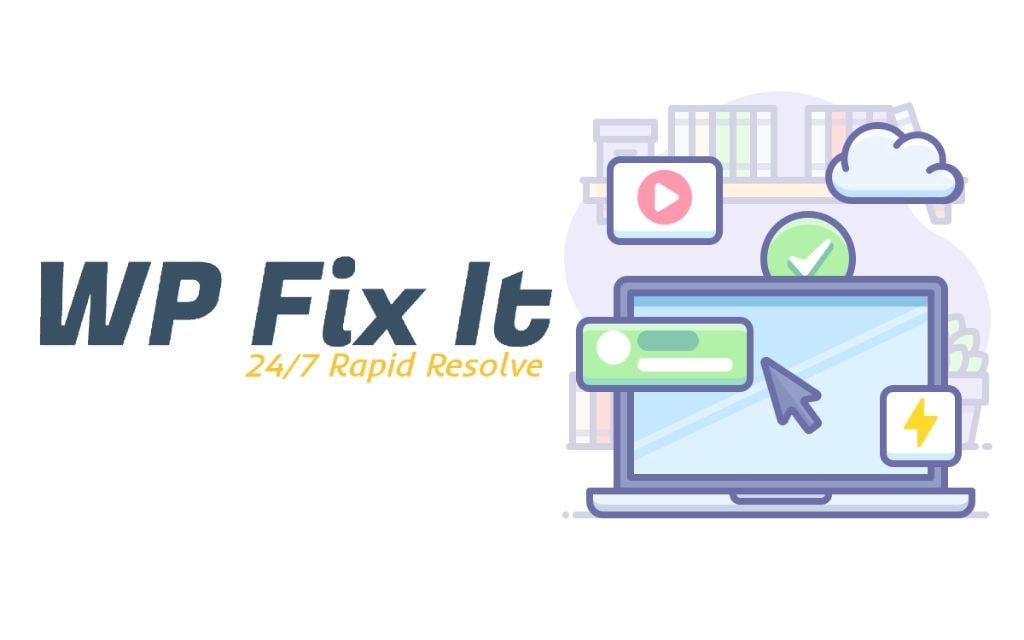
Conflict Finder by WP Fix It
The Plugin Conflict Finder tool by WP Fix It streamlines the traditionally time-consuming process of identifying WordPress theme plugin compatibility issues through systematic testing approaches. The tool’s one-click plugin deactivation feature allows administrators to bulk-disable plugins for conflict testing without manually managing individual plugin states.
Systematic conflict identification works by automatically reactivating plugins in controlled sequences while monitoring for error conditions, performance degradation, or functional failures. This approach significantly reduces the time required to isolate problematic plugins from hours to minutes.
Implementation involves installing the plugin through standard WordPress procedures and configuring testing parameters based on site-specific requirements. The tool provides guided workflows that make complex conflict detection accessible to users with varying technical expertise levels.
Time-saving features include batch testing capabilities, automated conflict reporting, and integration with common WordPress debugging tools. Professional WordPress developers particularly appreciate the tool’s ability to generate detailed conflict reports suitable for client communication and documentation.
4. PHP Compatibility Checker By WP Engine
WP Engine’s PHP Compatibility Checker provides enterprise-grade analysis through its PHP version compatibility matrix system, offering automated code analysis that scans installed plugins against current and future PHP versions. This sophisticated approach identifies potential compatibility issues before they become critical problems.
Future PHP version testing capabilities allow administrators to prepare for hosting provider upgrades by identifying plugins that may require updates or replacement. The tool’s predictive analysis helps prevent the common scenario of sudden site failures following server-level PHP upgrades.
Automated code analysis examines plugin codebases for deprecated functions, syntax incompatibilities, and other potential issues that could cause failures in newer PHP environments. This analysis provides specific recommendations for addressing identified issues.
Enterprise-grade features include detailed reporting, priority-based recommendations, and integration with professional WordPress development workflows. The tool’s integration with hosting platforms enables seamless compatibility testing as part of broader site maintenance procedures.
5. Query Monitor (Developer Tool)
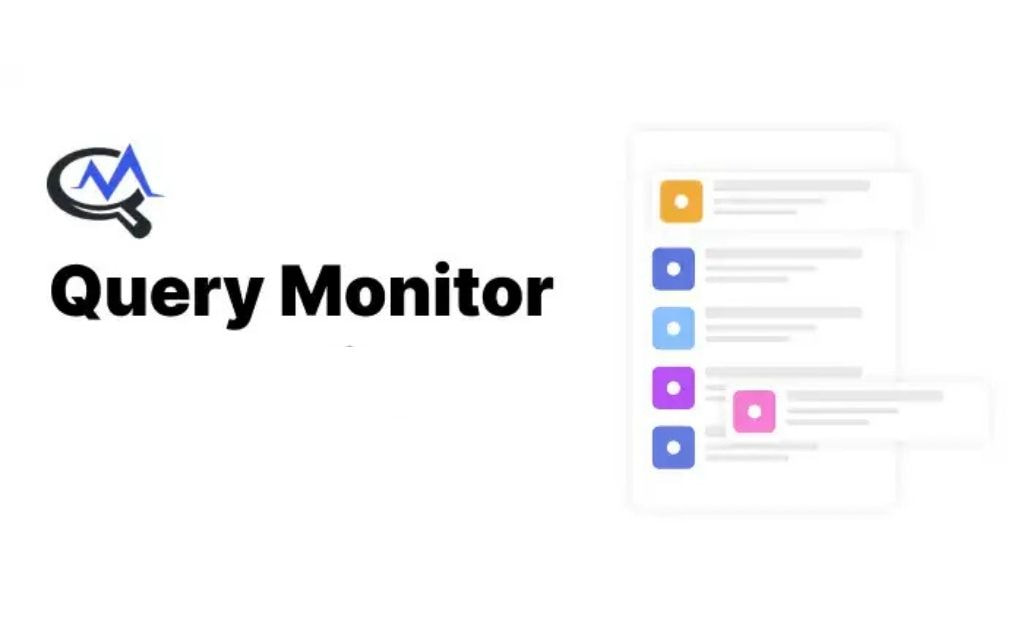
Query Monitor (Developer Tool)
Query Monitor serves as an advanced WordPress plugin debugging tool designed specifically for developers and technical administrators who require detailed insights into site performance and potential conflicts. The plugin provides real-time analysis of database queries, PHP errors, HTTP requests, and plugin interactions.
Advanced debugging capabilities include comprehensive error logging, performance monitoring, and detailed analysis of plugin interactions. This level of detail proves invaluable for identifying subtle compatibility issues that might not trigger obvious failures but still impact site performance.
Performance monitoring features track page load times, database query efficiency, and resource utilization across different plugin combinations. This data helps administrators optimize plugin selections and identify performance bottlenecks related to compatibility issues.
Database query analysis provides insights into how plugins interact with the WordPress database, identifying potential conflicts or inefficiencies that could impact site stability. Developer workflow integration includes compatibility with popular development environments and debugging tools.
6. WP Detector (Theme/Plugin Identification)
WP Detector offers unique WordPress theme compatibility checker functionality by providing detailed analysis of theme and plugin usage across websites. This tool proves particularly valuable for competitive analysis and market research applications in addition to compatibility checking.
Theme and plugin detection capabilities allow administrators to analyze any WordPress site’s technology stack, providing insights into popular plugin combinations and potential compatibility considerations. This information helps inform plugin selection decisions and compatibility planning.
Free features include basic theme and plugin identification, while premium subscriptions offer detailed compatibility analysis, historical data tracking, and advanced reporting capabilities. The tool’s database includes compatibility information for thousands of popular WordPress themes and plugins.
Market research applications extend beyond simple compatibility checking, providing insights into industry trends, popular plugin combinations, and emerging compatibility patterns. This data proves valuable for WordPress developers and agencies planning client implementations.
7. Debug Bar And Extensions
The Debug Bar plugin ecosystem provides comprehensive WordPress plugin debugging tools designed for development environments and advanced troubleshooting scenarios. The core plugin offers real-time debugging information through a convenient admin bar interface.
Real-time debugging features display PHP errors, database queries, and plugin interactions as they occur, providing immediate feedback during compatibility testing procedures. This real-time approach significantly accelerates the conflict identification process.
The extension ecosystem includes specialized add-ons for specific debugging requirements, such as query analysis, cache debugging, and performance monitoring. These extensions allow administrators to customize debugging capabilities based on specific site requirements and technical expertise levels.
Advanced user applications include integration with development workflows, automated testing procedures, and professional WordPress development practices. The tool’s extensible architecture supports custom debugging requirements and specialized use cases.
8. WP Engine DevKit
WP Engine’s DevKit represents the pinnacle of professional WordPress development tools, offering comprehensive compatibility testing through staging environment integration and automated testing capabilities. This enterprise-focused solution addresses the needs of professional developers and agencies managing multiple WordPress installations.
Professional development tools include advanced staging capabilities, automated plugin testing, and comprehensive compatibility analysis across multiple PHP versions and WordPress configurations. These tools enable proactive compatibility management at an enterprise scale.
Staging environment integration allows administrators to test plugin combinations and updates in isolated environments before deploying to live sites. This approach prevents compatibility issues from affecting production websites while enabling thorough testing procedures.
Automated testing capabilities include continuous integration support, scheduled compatibility checks, and detailed reporting systems. Enterprise features extend to multi-site management, team collaboration tools, and advanced analytics for tracking compatibility trends across multiple installations.
9. Sucuri Security Scanner
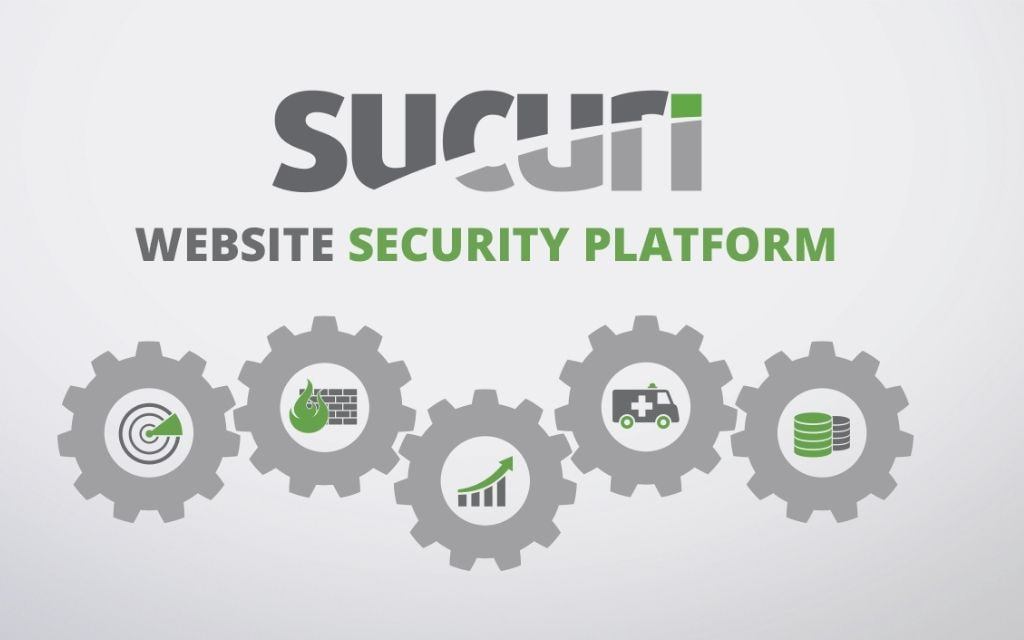
Sucuri Security Scanner
Sucuri’s Security Scanner provides security-focused compatibility checking that identifies potential conflicts between security plugins and other WordPress components. This specialized approach addresses the growing importance of security considerations in WordPress plugin selection and compatibility planning.
Security-focused compatibility checking examines how security plugins interact with themes, performance optimization plugins, and other critical site components. This analysis helps prevent security gaps that might occur due to plugin conflicts or incompatibilities.
Malware detection integration provides additional security benefits by identifying potentially malicious plugins or themes that could compromise site security. This comprehensive approach combines compatibility checking with proactive security monitoring.
Performance impact analysis examines how security plugins affect site performance and identifies potential conflicts that could degrade user experience. Security best practices recommendations help administrators balance security requirements with compatibility considerations.
10. Site Health By WordPress Core
WordPress Core’s built-in Site Health functionality provides native compatibility checking and diagnostic capabilities without requiring additional plugin installations. This official WordPress feature offers essential compatibility checking for users who prefer minimal plugin footprints.
Built-in diagnostic features include basic plugin compatibility analysis, PHP version checking, and system requirement verification. While less comprehensive than specialized tools, these features provide adequate functionality for basic compatibility monitoring.
Native WordPress integration ensures that Site Health functionality remains current with WordPress core updates and maintains compatibility with future WordPress versions. This integration eliminates concerns about third-party plugin maintenance or compatibility.
Accessibility and ease of use make Site Health functionality suitable for non-technical users who need basic compatibility checking without complex configuration requirements. However, limitations include reduced functionality compared to specialized tools and limited advanced debugging capabilities.
IV. Compatibility Testing Strategies By User Type
1. Small Business Owner Approach
Small business owners require WordPress plugin compatibility issues small business solutions that prioritize simplicity, reliability, and cost-effectiveness. The recommended approach focuses on essential tools that provide maximum protection with minimal technical complexity.
Non-technical implementation begins with installing the free Health Check & Troubleshooting plugin, which provides comprehensive compatibility checking without requiring advanced technical knowledge. Regular use of this tool’s troubleshooting mode enables systematic conflict detection during routine maintenance activities.
Essential tool selection should prioritize free solutions with proven track records, such as the official WordPress Health Check plugin and basic PHP compatibility checkers. These tools provide adequate protection for most small business websites while maintaining budget-friendly operations.
Maintenance scheduling should include monthly compatibility checks, preferably during low-traffic periods to minimize potential impact from any discovered issues. Small business owners should also establish relationships with qualified WordPress professionals for situations requiring advanced technical intervention.
2. WordPress Developer Workflow
Professional WordPress developers require sophisticated WordPress troubleshooting plugin solutions that integrate with advanced development workflows and support multiple client installations. The developer approach emphasizes automation, comprehensive testing, and detailed documentation.
Staging environment setup represents the foundation of professional compatibility testing, enabling thorough plugin and theme testing without risking live site stability. Developers should maintain separate staging environments for different client types and testing scenarios.
Automated testing integration involves incorporating compatibility checking into continuous integration pipelines, enabling automatic conflict detection during development processes. This approach prevents compatibility issues from reaching production environments.
Multisite compatibility validation requires specialized tools capable of testing plugin compatibility across multiple WordPress installations simultaneously. This functionality proves essential for developers managing WordPress multisite networks or multiple client installations.
3. Digital Marketer Best Practices

Digital Marketer Best Practices
Digital marketers must balance compatibility requirements with performance optimization and SEO considerations. The best WordPress plugin to detect theme conflicts for marketing professionals should prioritize features that directly impact search engine rankings and user experience metrics.
Performance monitoring integration ensures that compatibility testing includes analysis of page load times, Core Web Vitals scores, and other SEO-critical metrics. Marketing professionals should prioritize tools that provide detailed performance impact analysis alongside compatibility checking.
SEO impact assessment involves analyzing how plugin conflicts affect search engine crawling, indexing, and ranking factors. Tools should provide insights into how compatibility issues might impact organic search performance and provide recommendations for maintaining SEO optimization during troubleshooting.
Uptime optimization requires proactive compatibility management that prevents downtime scenarios that could impact marketing campaigns, conversion rates, and search engine rankings. Marketing professionals should implement automated monitoring that alerts to compatibility issues before they impact live sites.
4. E-commerce Site Requirements
E-commerce sites face critical compatibility considerations due to the high cost of downtime and the complexity of payment processing, inventory management, and customer data systems. How to prevent WordPress plugin conflicts on ecommerce site strategies must prioritize transaction security and revenue protection.
Critical compatibility considerations include payment gateway compatibility, SSL certificate interactions, and database synchronization between e-commerce plugins and other site components. E-commerce administrators must maintain detailed compatibility matrices for all installed plugins.
Transaction security implications require specialized compatibility testing that ensures security plugins, payment processors, and fraud detection systems work harmoniously without creating vulnerabilities or processing errors. Regular security-focused compatibility audits become essential for maintaining customer trust.
Peak traffic period planning involves pre-testing all plugin combinations during anticipated high-traffic events such as sales, product launches, or seasonal shopping periods. E-commerce sites should maintain dedicated staging environments that mirror production configurations for comprehensive compatibility testing.
V. Advanced Troubleshooting Techniques
1. Manual Conflict Detection Methods
WordPress plugin conflict finder for beginners can benefit from understanding manual detection methods that provide deeper insights into compatibility issues and build troubleshooting expertise. These techniques complement automated tools and provide valuable problem-solving skills.
Plugin deactivation strategies involve systematically disabling plugins to isolate conflict sources. The standard approach involves deactivating all plugins, verifying that conflicts resolve, then systematically reactivating plugins until conflicts reappear.
Theme switching procedures help identify theme-related compatibility issues by temporarily switching to default WordPress themes. If conflicts resolve with theme changes, the issue likely involves theme-plugin interactions rather than plugin-to-plugin conflicts.
Error log analysis provides detailed insights into the technical causes of compatibility conflicts. WordPress error logs contain specific information about PHP errors, database issues, and plugin interactions that can guide resolution efforts.
2. Professional Development Practices

Professional Development Practices
WordPress plugin compatibility checker for developers requires sophisticated practices that integrate with professional development workflows and support multiple client installations. These practices emphasize automation, documentation, and proactive conflict prevention.
Version control integration enables tracking of plugin changes, compatibility test results, and resolution procedures. Professional developers should maintain detailed version control records that support troubleshooting and rollback procedures.
Continuous integration setup incorporates compatibility testing into automated development pipelines, preventing compatibility issues from reaching production environments. CI/CD systems can automatically test plugin combinations against multiple WordPress and PHP versions.
Automated testing frameworks provide comprehensive compatibility testing across multiple environments and configurations. These frameworks can simulate various hosting environments, PHP versions, and plugin combinations to identify potential compatibility issues.
3. Emergency Response Procedures
WordPress white screen of death scenarios require immediate response procedures that prioritize site recovery while preserving data integrity and identifying root causes. Emergency procedures should be documented and regularly tested to ensure effectiveness during crisis situations.
Site recovery protocols include immediate backup restoration, plugin deactivation procedures, and communication strategies for informing stakeholders about site issues. Recovery procedures should be executable by multiple team members to ensure availability during emergencies.
Rapid diagnostic techniques enable quick identification of compatibility issues during emergency situations. These techniques prioritize speed and accuracy while providing sufficient information for implementing appropriate resolution strategies.
Backup restoration procedures should be thoroughly tested and documented, including database restoration, file recovery, and configuration settings. Emergency restoration should be possible within minutes to minimize downtime impact.
VI. Prevention and Maintenance Best Practices
1. Proactive Compatibility Management
Effective WordPress plugin validation requires proactive management strategies that prevent compatibility issues through careful planning, regular monitoring, and systematic testing procedures. Prevention proves significantly more cost-effective than reactive troubleshooting.
Regular testing schedules should include monthly compatibility checks, pre-update testing, and post-update verification procedures. Testing schedules should coordinate with maintenance windows and low-traffic periods to minimize potential impact from discovered issues.
Update planning strategies involve reviewing plugin changelogs, compatibility notes, and community feedback before implementing updates. Staged update procedures should test updates in non-production environments before applying to live sites.
Vendor communication includes maintaining relationships with plugin developers, monitoring support forums, and subscribing to plugin-specific newsletters or announcements. Proactive communication helps administrators anticipate compatibility issues before they occur.
3. Long-term Sustainability

Long-term Sustainability
WordPress maintenance strategies must address long-term sustainability through tool rotation, knowledge base development, and team training requirements. Sustainable approaches ensure continued compatibility management effectiveness over time.
Tool rotation strategies prevent over-dependence on single compatibility checking solutions by maintaining familiarity with multiple tools and approaches. Diversification provides redundancy and ensures continued capability if preferred tools become unavailable.
Knowledge base development involves documenting compatibility testing procedures, conflict resolution strategies, and site-specific compatibility considerations. Comprehensive documentation supports team training and ensures consistent troubleshooting approaches.
Budget planning for tools should consider both direct tool costs and the broader cost-benefit analysis of compatibility management. Regular budget reviews should evaluate tool effectiveness and consider upgrades or alternatives based on changing requirements.
VII. Frequently Asked Questions
How Do I Check If My WordPress Plugins Are Compatible Before Updating?
Use the WordPress Health Check & Troubleshooting plugin to test updates safely. Always back up, enable troubleshooting mode, and verify functionality before applying changes. Staging environments remain the gold standard for compatibility testing. Essential steps: validate core functions, critical paths, error logs, performance, and document results.
What’s The Best Free WordPress Plugin Compatibility Checker For Small Businesses?
The WordPress Health Check & Troubleshooting plugin is the best free solution for small business compatibility issues, offering diagnostics, isolation, and reporting. Alternatives include Site Health and PHP checkers. Budget-conscious owners should prioritize proven, actively supported tools. Health Check delivers enterprise-level functionality, strong community backing, and zero cost.
Can WordPress Plugin Conflicts Cause Seo Ranking Drops?
Plugin conflicts hurt WordPress SEO by slowing load speeds, raising bounce rates, and disrupting crawl efficiency. Core Web Vitals makes performance vital. Conflicts can break sitemaps, robots.txt, or cause crashes blocking indexing. Recovery requires fast resolution, audits, monitoring, and routine SEO checks in site health maintenance.
How Often Should I Test WordPress Plugin Compatibility?
Most WordPress sites need monthly compatibility checks plus testing before updates. High-traffic sites require more frequent schedules. Trigger events include core, PHP, hosting, or plugin changes. Automation with scheduled checks, monitoring, and update integrations streamlines testing. Debugging tools can send alerts, ensuring rapid response to emerging compatibility risks.
What Should I Do If I Discover A Critical Plugin Conflict On My Live Site?
Emergency response starts with backups, then systematic plugin deactivation to isolate conflicts while preserving data and UX. Recovery methods include admin, FTP, or database adjustments. Document and test procedures regularly. Prevention requires recent backups, staging tests, and monitoring systems for early conflict detection, ensuring rapid recovery and stability.
VIII. Conclusion
WordPress theme plugin compatibility tools have become essential infrastructure for maintaining stable, secure, and high-performing WordPress websites in 2025. From small business owners protecting their online presence to professional developers managing complex client installations, the right compatibility tools prevent costly downtime while ensuring optimal user experiences.
The landscape of WordPress compatibility management continues evolving toward greater automation, predictive capabilities, and seamless integration with broader WordPress ecosystems. Whether you choose free solutions like the Health Check & Troubleshooting plugin or invest in premium enterprise tools, proactive compatibility management delivers significant ROI through prevented downtime and improved site reliability.
For WordPress theme solutions designed with compatibility in mind, explore the professionally crafted themes available at Temply Studio. Our themes undergo rigorous compatibility testing to ensure seamless integration with popular WordPress plugins, providing the stable foundation your website deserves for long-term success.
Take action today by implementing the compatibility tools and strategies outlined in this guide, and transform your WordPress maintenance from reactive troubleshooting to proactive prevention that protects your online investment and drives continued growth.

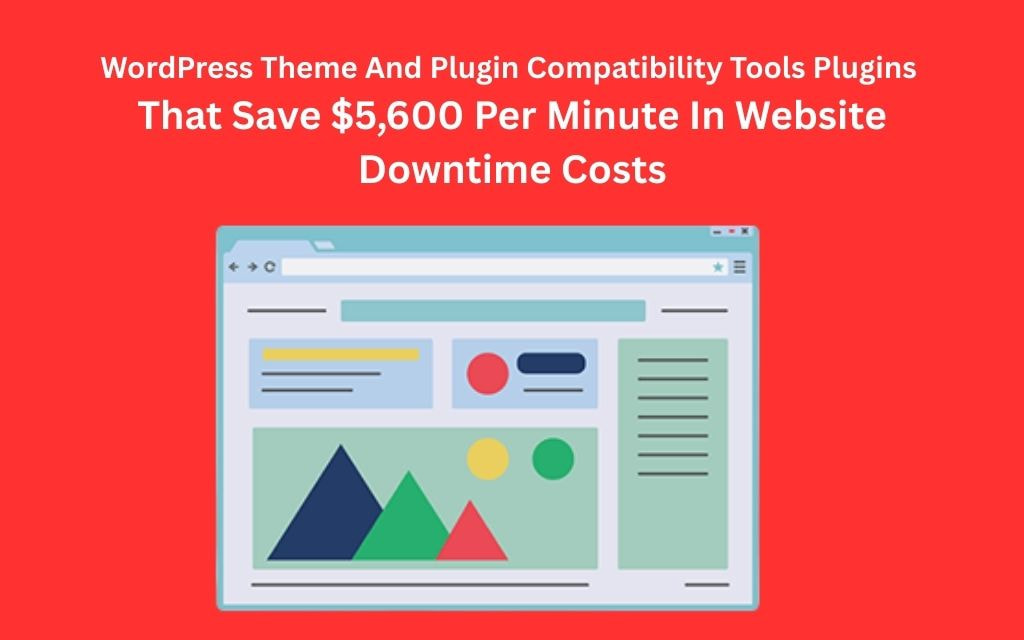





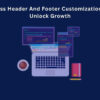
Add comment